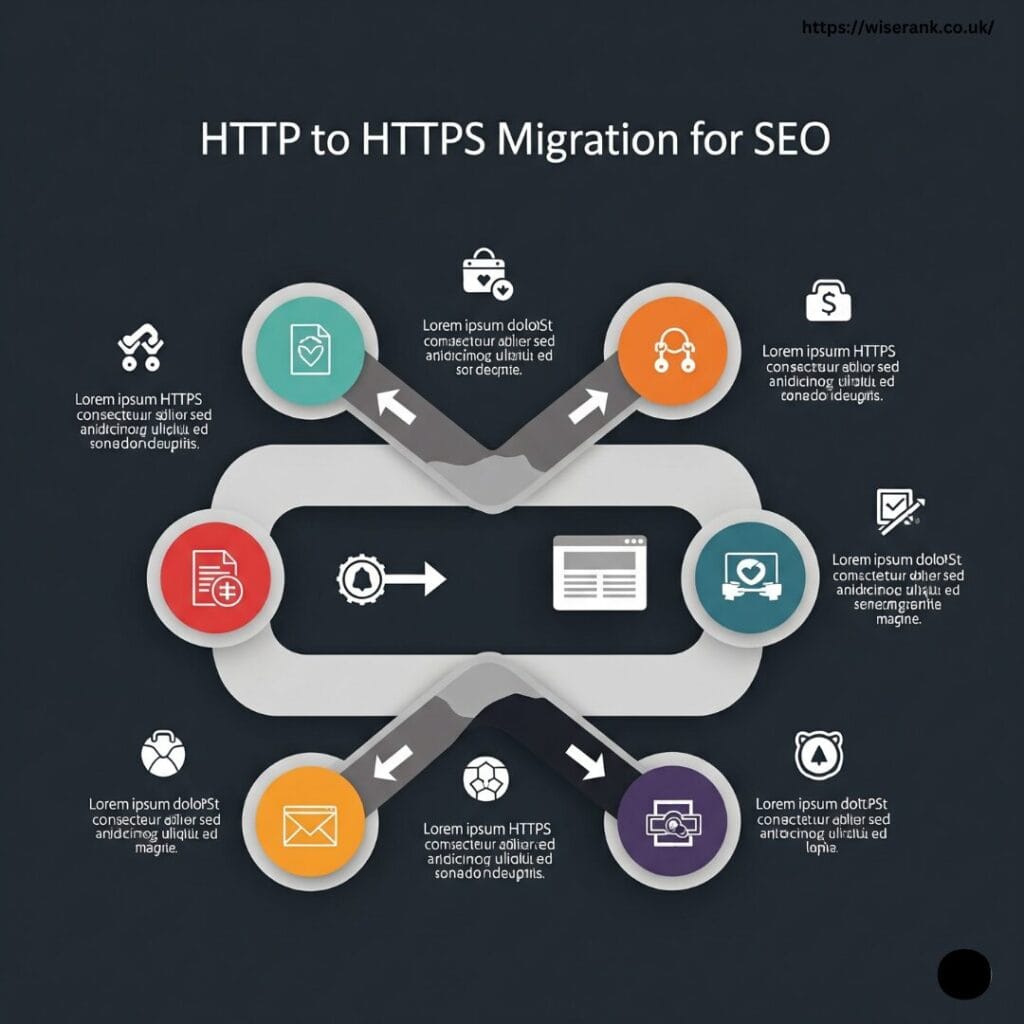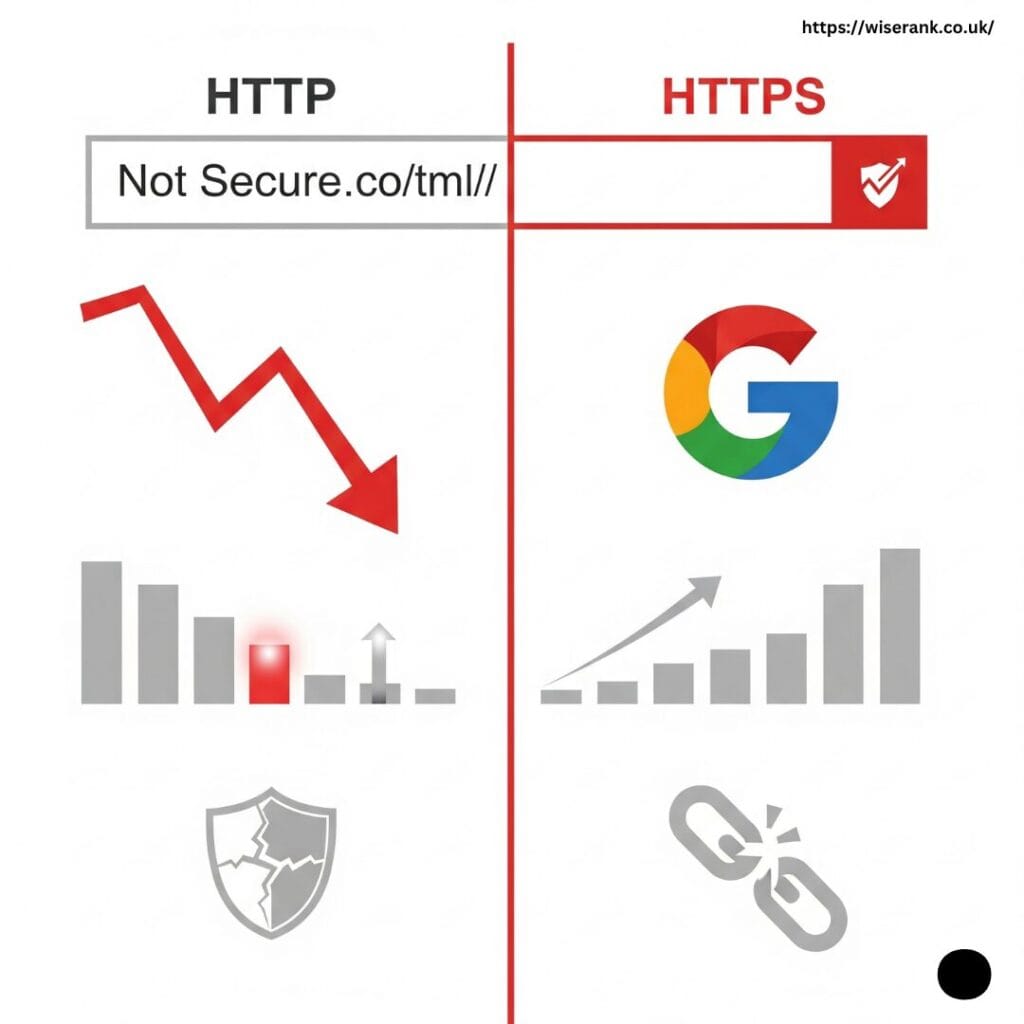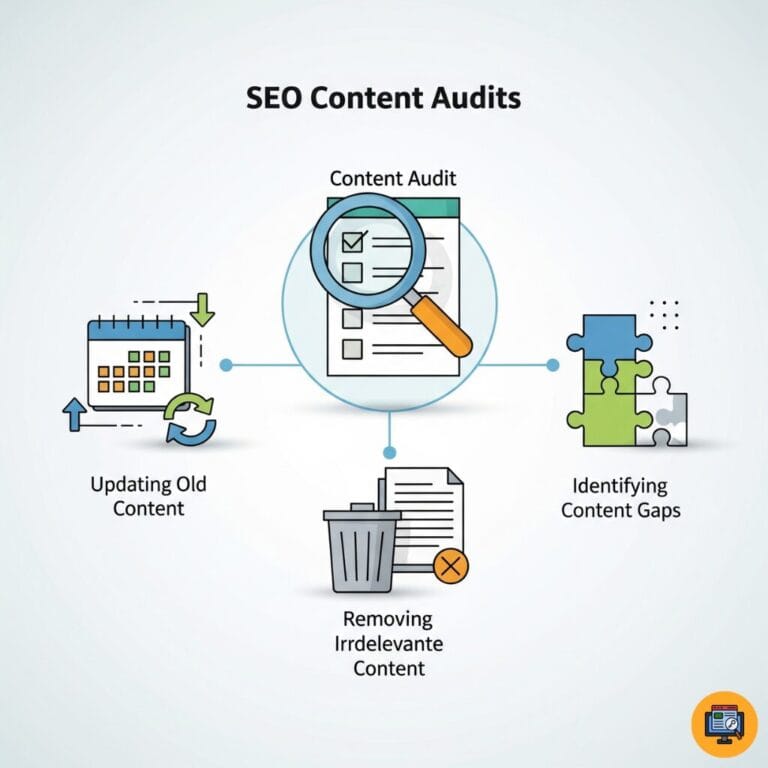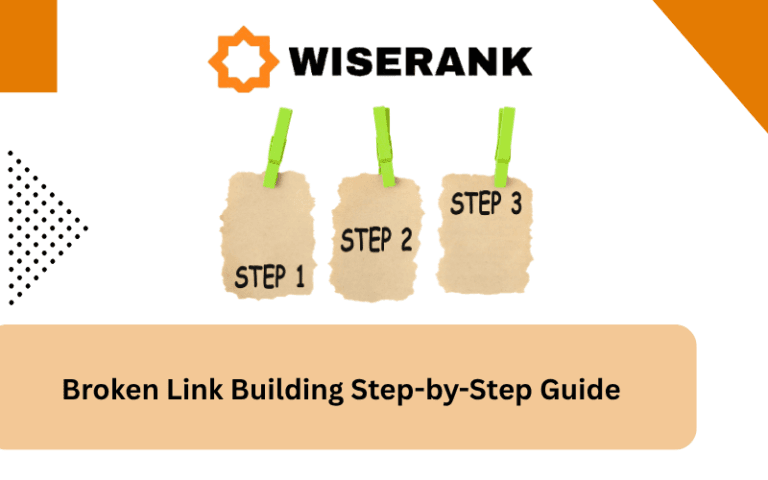In today’s digital world, website security is no longer optional — it’s a fundamental ranking factor. HTTPS and SEO go hand in hand because search engines like Google now prioritize secure websites in their algorithms. If your website still uses HTTP, you’re not only risking user trust but also your search engine rankings.

In this complete guide, we’ll cover:
- What HTTPS is and how it works
- Why HTTPS is important for SEO
- The ranking benefits of HTTPS
- How to migrate from HTTP to HTTPS without losing SEO
- Best practices for HTTPS and SEO
- Common mistakes to avoid
- How Wiserank can help you implement HTTPS for better SEO results
What is HTTPS?
HTTPS (Hypertext Transfer Protocol Secure) is the secure version of HTTP. It encrypts communication between a user’s browser and your website using an SSL (Secure Sockets Layer) or TLS (Transport Layer Security) certificate.
- HTTP vs HTTPS:
- HTTP sends data in plain text, making it vulnerable to hackers.
- HTTPS encrypts data, ensuring privacy and integrity.
When a website uses HTTPS, browsers display a padlock icon in the address bar — a visual trust signal for users.
Why HTTPS is Important for SEO?
1. HTTPS as a Google Ranking Factor
Since 2014, Google has confirmed HTTPS as a ranking signal. This means that, all else being equal, a site with HTTPS may outrank an HTTP site. While the ranking boost alone may not be massive, combined with other SEO improvements, it can make a noticeable difference.
2. Improves User Trust and Click-Through Rates
Users are becoming more aware of online security. A secure padlock icon in the browser builds credibility and trust, which can improve CTR (click-through rate) from search results.
3. Protects Data Integrity
Without HTTPS, hackers can intercept and modify data between the browser and server. This can harm both user experience and search engine trust in your website.
4. Essential for E-Commerce and Form Submission Sites
If you collect payment information, personal data, or even newsletter sign-ups, HTTPS is mandatory for compliance with privacy laws like GDPR and PCI DSS.
Google’s Stand on HTTPS and SEO
Google Chrome marks all HTTP websites as “Not Secure” in the address bar. This warning can scare away visitors and increase bounce rates, which indirectly impacts SEO performance.
HTTPS SEO Benefits
| Benefit | SEO Impact |
|---|---|
| Ranking boost | Helps improve SERP position |
| Increased trust | Higher CTR and conversions |
| Data encryption | Better security signals |
| Improved site integrity | Reduced bounce rate |
| Eligibility for modern web features | Required for AMP, HTTP/2, and PWA |
HTTP vs HTTPS for SEO

| Factor | HTTP | HTTPS |
|---|---|---|
| Security | Unencrypted | Fully encrypted |
| Google Ranking | Lower priority | Higher priority |
| User Trust | Low | High |
| Chrome Warning | “Not Secure” | Padlock icon |
| Required for SEO Features | No | Yes |
Does HTTPS Improve SEO?
Yes. While HTTPS alone won’t catapult you to the #1 position, it’s a confirmed ranking factor, improves user trust, and enables advanced performance features like HTTP/2 which can boost website speed — another SEO ranking factor.
How to Migrate from HTTP to HTTPS Without Losing SEO
Switching from HTTP to HTTPS is called an HTTPS migration. If not done properly, it can result in ranking drops and broken links. Here’s the step-by-step SEO-friendly process:
- Get an SSL Certificate
- Use Domain Validated (DV) for blogs and basic sites.
- Use Organization Validated (OV) or Extended Validation (EV) for businesses.
- Install SSL on Your Server
Work with your hosting provider to set up SSL/TLS. - Update Internal Links
Change all internal URLs fromhttp://tohttps://. - Set Up 301 Redirects
Redirect all HTTP URLs to their HTTPS versions to preserve SEO value. - Update Canonical Tags
Ensure all canonical URLs point to HTTPS pages. - Update Sitemap and Robots.txt
Replace HTTP URLs with HTTPS versions. - Add HTTPS Property to Google Search Console
Track indexing and performance for the secure version. - Update External Links and Backlinks
Contact high-value backlink sources and request they update to your HTTPS URL. - Monitor Traffic and Rankings
Use tools like Google Analytics and Search Console to ensure smooth migration.
HTTPS Best Practices for SEO
- Always use 301 redirects (not 302) for migration.
- Update hreflang tags for international SEO.
- Ensure your SSL certificate is valid and renewed annually.
- Avoid mixed content issues (HTTP resources on HTTPS pages).
- Use HTTP/2 to improve speed.
Common HTTPS SEO Mistakes to Avoid
- Forgetting to redirect old HTTP URLs
- Leaving some pages insecure (partial HTTPS)
- Not updating sitemap after migration
- Not testing for mixed content errors
- Ignoring mobile performance after migration
Future of HTTPS and SEO
With AI search engines and voice search optimization (AEO) becoming mainstream, trust signals like HTTPS will become even more critical. Search engines will likely give more weight to security in the coming years.
Why Choose Wiserank for Your HTTPS and SEO Implementation
At Wiserank, we don’t just switch your website to HTTPS — we ensure it’s fully optimized for SEO, speed, and user trust.
Here’s why businesses trust us:
- Full-Service SEO Expertise: We handle technical, on-page, and off-page SEO, ensuring HTTPS migration fits into your overall SEO strategy.
- Proven Results: Clients see measurable improvements in rankings, traffic, and conversions after secure migration.
- Tailored Solutions: Every site is unique — we create a migration plan that matches your website’s needs.
- Data-Driven Approach: Every step is backed by data from tools like Google Search Console, Screaming Frog, and PageSpeed Insights.
- Security + SEO Focus: We ensure your site is not just secure but also perfectly optimized for search visibility.
Final Thoughts
HTTPS and SEO are inseparable in modern digital marketing. A secure, encrypted website not only protects users but also boosts your visibility in search results. Google rewards trust, and HTTPS is one of the most visible trust signals you can provide.
By implementing HTTPS correctly, you’ll:
- Improve search rankings
- Enhance user trust
- Protect data integrity
- Future-proof your SEO strategy
If you’re ready to migrate to HTTPS without losing rankings, partner with Wiserank — and let us handle the technical heavy lifting so you can focus on growing your business.






